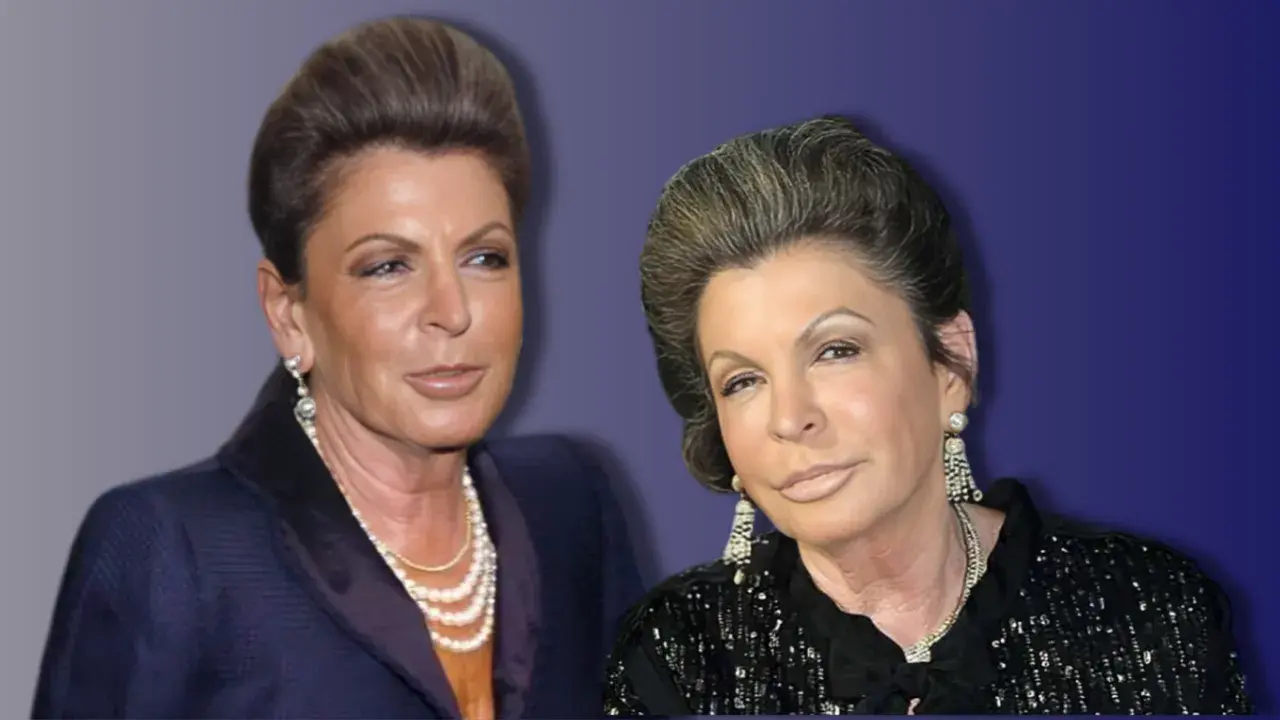Top 10 Richest Men In Switzerland According To Forbes (2025)
When you think of Switzerland, your mind might immediately go to chocolates, watches, the Alps, and yes—banking. But beneath that polished surface is a small but mighty nation that’s home to some of the wealthiest individuals on the planet. With its favorable tax environment, political stability, and strong sectors in logistics, finance, biotech, and pharmaceuticals, Switzerland has become not only a haven for wealth but a hub where global billionaires thrive.
Let’s dive into the top 10 richest individuals in Switzerland as of 2025, according to Forbes. You’ll find shipping magnates, biotech pioneers, fintech disruptors, and industrialists who’ve turned legacy businesses into empires.
1. Rafaela Aponte-Diamant – $37.7 Billion
Industry: Shipping
Age: 80
Rafaela Aponte-Diamant, alongside her husband, co-founded the Mediterranean Shipping Company (MSC), now the largest shipping line in the world. With an estimated net worth of $37.7 billion, she tops the Swiss rich list in 2025. Known for staying out of the public spotlight, Rafaela’s journey from modest beginnings to maritime dominance is as impressive as it is inspiring. Together with her family, she has overseen the growth of MSC into a global behemoth operating over 700 vessels.
2. Gianluigi Aponte – $37.7 Billion
Industry: Shipping
Age: 84
Gianluigi, husband to Rafaela, shares the same net worth and co-founder title at MSC. Originally from Italy, he and Rafaela made Switzerland their home and the base for their shipping empire. His leadership turned MSC into a dominant player not only in container shipping but also in cruise tourism through MSC Cruises. While technically tied in net worth with Rafaela, their partnership demonstrates how family-run businesses can outcompete even corporate giants.
3. Ernesto Bertarelli – $11.5 Billion
Industry: Biotech, Investments
Age: 59
Ernesto Bertarelli made his fortune from Serono, a biotech firm that developed fertility drugs and other cutting-edge pharmaceutical products. After selling Serono for a reported $13 billion, he shifted his focus to investment via Waypoint Capital. He’s also known for his philanthropy in marine conservation and medical research. With a keen eye for healthcare innovation, Ernesto remains a key figure in Europe’s biotech scene.
4. Ivan Glasenberg – $9.7 Billion
Industry: Mining
Age: 68
Glasenberg, former CEO of Glencore, built his wealth in the commodities sector. Under his leadership, Glencore became one of the world’s largest diversified natural resource companies. Though he stepped down as CEO, he retains a significant stake and influence in the company. A South African-born citizen of Switzerland, Ivan exemplifies the modern commodities billionaire—shrewd, global, and media-shy.
5. Magdalena Martullo-Blocher – $8.8 Billion
Industry: Chemicals
Age: 56
Daughter of Swiss industrialist and politician Christoph Blocher, Magdalena is CEO of EMS-Chemie, a specialty chemicals company. Her business acumen has helped grow the company’s international footprint. Aside from her corporate role, she’s also a Member of the Swiss Parliament, blending power in both business and politics.
6. Thomas Schmidheiny – $8.4 Billion
Industry: Cement
Age: 79
Thomas Schmidheiny inherited Holcim, one of the world’s leading cement companies. Even after Holcim merged with Lafarge to form LafargeHolcim (now Holcim Ltd), Thomas retained a sizeable stake. His investments now span real estate, art, and philanthropy, but cement remains the foundation of his fortune—pun very much intended.
7. Guillaume Pousaz – $7.8 Billion
Industry: Fintech
Age: 43
A modern success story, Guillaume Pousaz is the founder and CEO of Checkout.com, one of Europe’s most valuable fintech companies. The Swiss entrepreneur disrupted the global payment processing industry by offering faster, more secure digital transactions. His company’s growth, especially during the e-commerce boom, has made him a poster child for Swiss innovation in the digital economy.
8. Dona Bertarelli – $7.4 Billion
Industry: Biotech and Investments
Age: 57
Sister to Ernesto Bertarelli, Dona co-inherited the Serono fortune. She is not only a businesswoman but also an accomplished yachtswoman and philanthropist. Dona’s focus areas include ocean conservation and sustainable development. Her wealth and activism reflect a growing trend of billionaire impact investing and environmental advocacy.
9. Rahel Blocher – $6.8 Billion
Industry: Chemicals
Age: 49
Another Blocher family member, Rahel holds significant shares in EMS-Chemie and is deeply involved in strategic management. Though less politically active than her sister Magdalena, Rahel plays a crucial role in maintaining the family’s industrial legacy and expanding its global influence.
10. Martin Haefner – $5.6 Billion
Industry: Software, Investments
Age: 71
Martin Haefner inherited his wealth from his father Walter Haefner, a car importer who also invested early in software giant CA Technologies. Martin has since diversified his holdings into private equity and technology ventures, marking a smooth transition from old-school inheritance to modern investing.
A Swiss Cocktail of Wealth
Switzerland’s richest aren’t just sitting on their wealth—they’re actively shaping industries and policy across the globe. From controlling international shipping routes to rewriting the rules of fintech, these billionaires are anything but static.
What stands out is the diversity of sectors:
-
Logistics – Thanks to MSC, Switzerland is a surprising shipping powerhouse.
-
Finance & Fintech – With Guillaume Pousaz rising fast and legacy families investing smartly, finance remains king.
-
Biotech & Healthcare – The Bertarelli siblings have put Switzerland on the global health innovation map.
-
Chemicals & Manufacturing – The Blochers’ EMS-Chemie shows how traditional industries can still dominate.
-
Mining & Commodities – Glasenberg and Margarita Louis-Dreyfus prove Swiss billionaires still dig deep for wealth.
Final Thoughts
Switzerland may be small in size, but it’s massive in financial clout. The country has consistently provided a stable and discreet environment for wealth accumulation, but as these profiles show, Swiss billionaires are far from passive players. They’re global in vision, aggressive in business, and increasingly active in philanthropy and politics.
If there’s one lesson from the Swiss top 10, it’s this: real wealth doesn’t just come from owning assets—it comes from building, scaling, and transforming entire industries.



